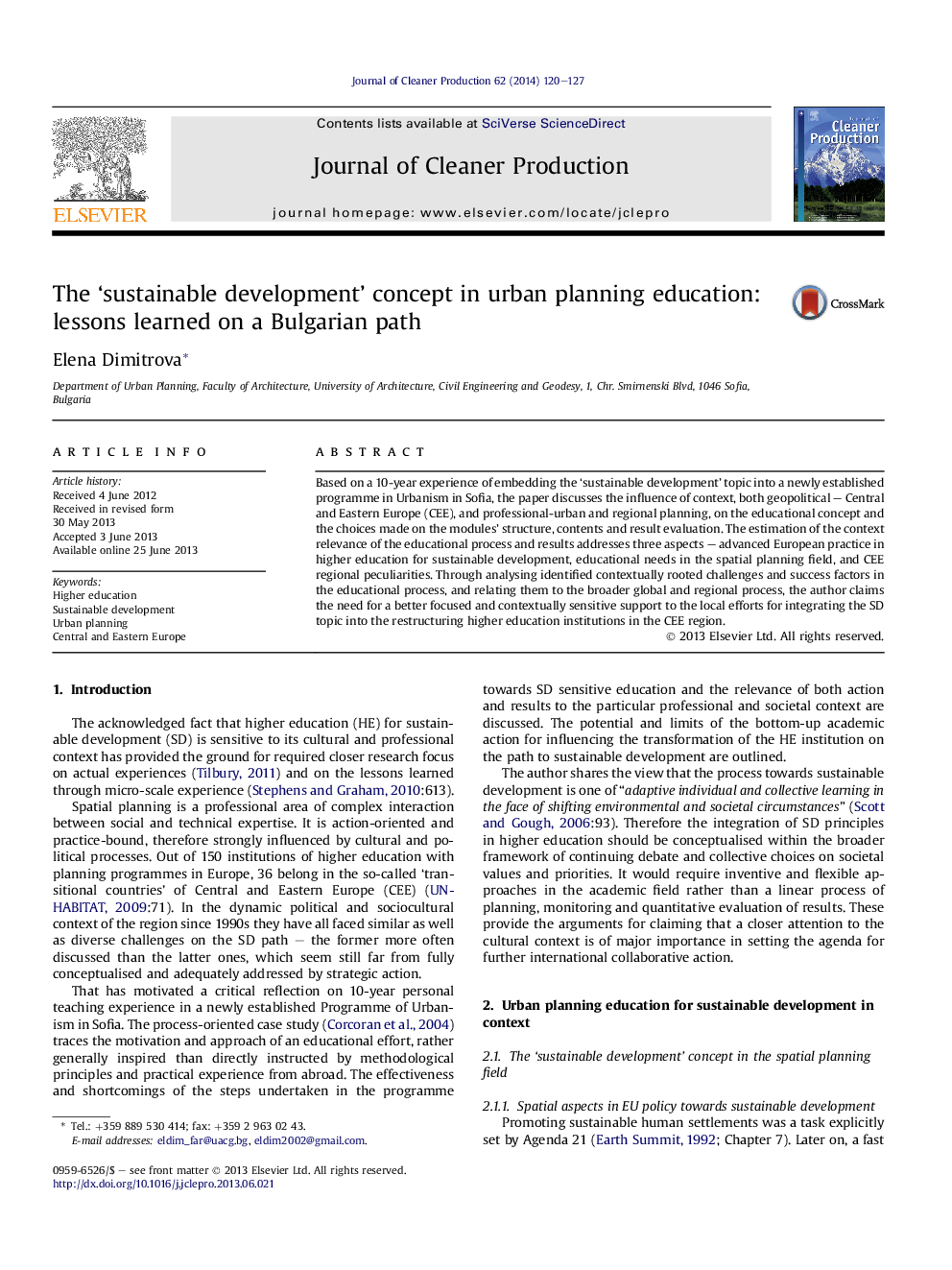| Article ID | Journal | Published Year | Pages | File Type |
|---|---|---|---|---|
| 1745088 | Journal of Cleaner Production | 2014 | 8 Pages |
•Debate and adaptive learning are basic in education for sustainable development.•Micro-scale and process-oriented research identifies context influence.•Evaluation of educational results addresses capacity and motivation for action.•Bottom-up initiatives create synergies but are not enough for HE system transformation.•Promoting context relevant education requires research on long-term processes.
Based on a 10-year experience of embedding the ‘sustainable development’ topic into a newly established programme in Urbanism in Sofia, the paper discusses the influence of context, both geopolitical – Central and Eastern Europe (CEE), and professional-urban and regional planning, on the educational concept and the choices made on the modules' structure, contents and result evaluation. The estimation of the context relevance of the educational process and results addresses three aspects – advanced European practice in higher education for sustainable development, educational needs in the spatial planning field, and CEE regional peculiarities. Through analysing identified contextually rooted challenges and success factors in the educational process, and relating them to the broader global and regional process, the author claims the need for a better focused and contextually sensitive support to the local efforts for integrating the SD topic into the restructuring higher education institutions in the CEE region.
